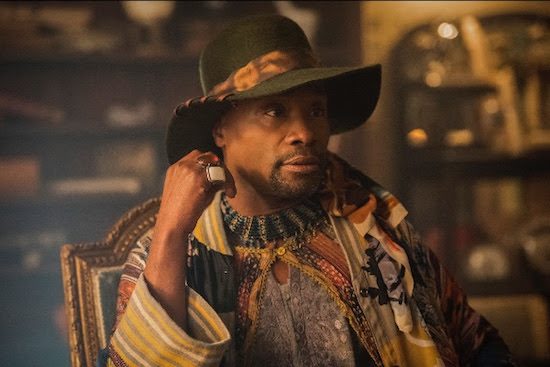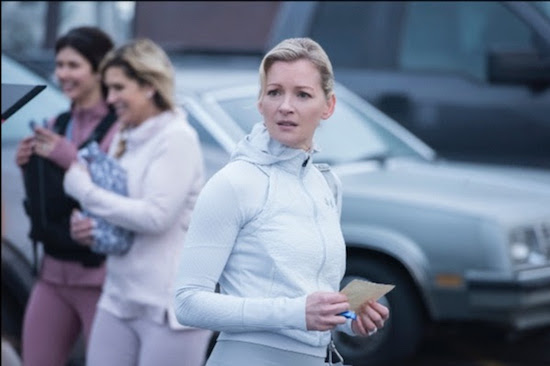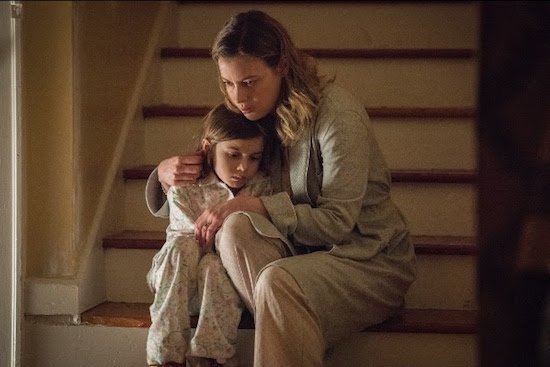Gillian Jacobs in ‘Meet In The Middle’
Rod Serling’s original Twilight Zone, which ran on CBS for five seasons from 1959 to 1964, was a groundbreaking series for its time that infused its stories of cosmic irony and the often capricious turns fate may take with a strong sense of social justice. Serling’s trademark narrative turn at the beginning of each episode, as well as the empathic aspect of his writing, and the indisputably high quality of the other authors whose stories appeared on the show (Richard Matheson, Charles Beaumont, Ray Bradbury and George Clayton Johnson, to name but a few), were all factors that contributed to earning the show a special place in the hearts of many fans.
I ‘discovered’ the show myself, aged 12 or 13, after picking up Marc Scott Zicree’s excellent Twilight Zone Companion in my local comic book store and used to videotape them from BBC2’s late night schedule. The best of those episodes, particularly from the first three seasons, had a kind of irrefutable magic and humanity about them that Serling himself struggled to recapture as the series progressed and which his later show Night Gallery only very rarely achieved. Little surprise then that rebooting the show, as has happened three times now, is a difficult and often thankless task for whoever attempts it.
The 1985 revival, with a wonderfully eerie theme composed by the Grateful Dead and Merl Saunders, certainly had its moments, with some fine stories from Greg Bear, Ray Bradbury, Robert McCammon, Harlan Ellison and Stephen King. A later revival, with Forest Whittaker presenting, was less successful and was cancelled after one season.

Greta Lee in ‘You Might Also Like’
Given his success with brilliant debut feature, Get Out, Jordan Peele seemed a good choice as presenter for the 2019 reboot. Although Peele didn’t write any of the first series’ ten episodes, his style of introduction, mirroring the language that Rod Serling would have used himself ("submitted for your approval" etc), but with his own sense of dramatic gravitas and sharp tailoring, seemed a good fit for the show. Of the ten episodes, perhaps only one (‘A Traveller’) was a little disappointing. Thankfully there were several high points too. ‘The Wunderkind’, in which a disgruntled political campaign manager gets an eleven-year-old YouTube star elected president. ‘Replay’, in which an old family camcorder that has the power to turn back time holds up a mirror to police brutality against the black community. ‘Six Degrees Of Freedom’, a creepy alien paranoia piece worthy of Philip K Dick. All of these stories successfully transposed essential elements of Serling’s original vision into a contemporary setting. The season finale even attempted some more direct form of communion with the spirit of its creator, though the exact details of that are best left to viewers to discover for themselves.
Yet the series was unevenly received by critics. Many felt that its more political episodes (such as the eleven-year-old as president, throwing tantrums and accusing others of "treason",) were too blunt in their satire. Some critics seemed to feel that such social commentary was contrary to the spirt of Rod Serling, which struck me as odd, as situations of social unfairness and the horrors that our leaders sometimes bring upon their people, were exactly the kind of subjects that the original host felt compelled to cover. Other critics felt that shows such as Black Mirror had superseded Serling’s now rather quaint perspective. Whilst all anthology shows are bound to have the occasional poorly realised story to bring the overall tone down, personally I find Black Mirror to be more uneven than most.

Billy Porter in ‘The Who Of You’
Now The Twilight Zone is returning for a second season, with Peele himself having written episode 2, ‘Downtime’. Of the three screeners being sent out to critics, ‘Meet In The Middle’, starring Jimmi Simpson (who also starred in the Black Mirror episode ‘USS Callister’) and Gillian Jacobs, is the weakest by far. Bachelor Phil is on a first date with a woman he’s obviously not connecting with, when suddenly he hears a female voice in his head. No doubt a pun on that feeling that many have likely had during a date with a stranger, namely that hope for a ‘real connection’ with someone, once Phil has gotten over the initial weirdness, his relationship with the voice progresses to the point where an apparently real emotional connection develops. This section of the episode inevitably draws comparisons with Spike Jonze’s 2014 film Her. Simpson initially plays Phil as a harmless sort of loser, unable to find a romantic attachment due to his own preconceived notions and expectations. As the episode progresses, his character becomes considerably more unpleasant and creepy and there is a genuine discomfort felt watching the story unfold. I kept wondering how the episode could possibly redeem itself but the final twist did manage to do just that. Without wishing to give anything away, the penultimate twist is smart and makes the viewer question differently perceived aspects of reality, and the final twist is even shrewder still.
‘The Who Of You’ stars Ethan Embry as a struggling actor with low levels of empathy, whose suddenly discovered power to move his consciousness and self from one body to another leads to a number of situations, some expected and some not so obvious. It’s an enjoyable, fast paced tale with some interesting twists and a subtle message concerning our affinity or lack of it for other human beings.

Gretchen Mol in ‘You Might Also Like’
‘You Might Also Like’, starring Gretchen Mol, is the superlative episode out of the three, perhaps unsurprisingly as it’s the season finale. Mol is excellent as stay-at-home housewife, Mrs. Warren, who seems stuck in some form of repeating nightmare involving a mysterious ‘Egg’ – a much desired consumer item disseminated from ‘fulfilment centres’ that “promises to make everything better for everyone forever”. Formally daring in its use of visually announced chapters and advertisement-like dreams, this episode riffs on the mass hypnosis of consumerism and our unquenchable desire for new and ‘perfect’ objects. It also takes an unexpected and rather thrilling detour two-thirds of the way through, referencing a classic episode from Serling’s original series in a way that perfectly encapsulates the show’s desire to update it’s vibe for contemporary times, whilst maintaining a respectful and amusing connection with its source material.
If any of the remainder of the seven episodes of season two can attain this kind of standard, hopefully throwing in some moments of necessary current social commentary of the kind that ‘Replay’ and ‘The Wunderkind’ offered in season one, then Jordan Peele’s Twilight Zone can continue to walk that fine line in presenting a winning version of Rod Serling’s original vision, updated fittingly to our present time.
The Twilight Zone season 2 is currently streaming on CBS All Access in the US. A date for UK transmission has yet to be announced, although season 1 is available on Now TV


